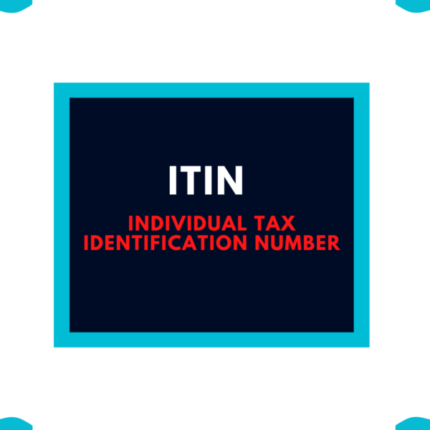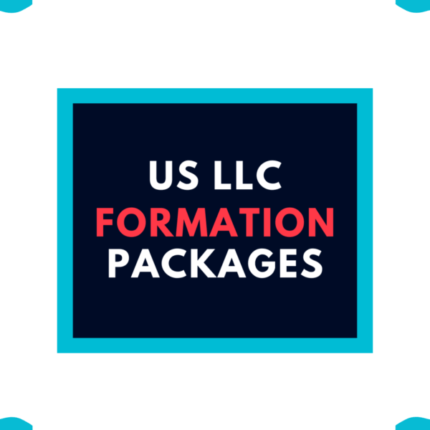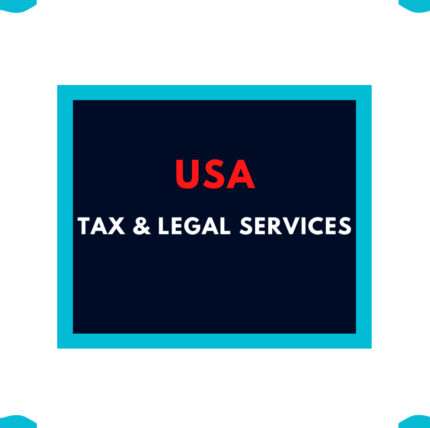How to Form a Vermont LLC
A Vermont LLC is a formal structure that protects your home, car, and bank account if your business is sued.
An L.L.C. can be used to run a business or hold assets like real estate, cars, boats, or planes.
A. Vermont L.L.C. Name:
Before you file your Vermont Articles of Organization, you’ll need to check the state’s website to see if the Vermont L.L.C. name you want to use is available.
Vermont law says that the name you want for your L.L.C. should be unique and “recognizable in the records” of the Secretary of State.
Vermont L.L.C. Name Search:
Business Search from the Vermont Corporations Division
L.L.C. Designator: 11 V.S.A. Section 4005 says that the name of your L.L.C. must end with a proper designator. One of the following must be used as an identifier:
* L.L.C. (most popular)
* L.L.C.
* L.C.
* L.C. Limited Liability
* Company Limited
* Liability Company
* Limited Liability Co.
B. Vermont Registered Agent
In the Articles of Organization for your Vermont L.L.C., you must give the name and address of a Vermont Registered Agent.
Vermont Registered Agent is a person or business that agrees to get legal mail for your business if it gets sued. Service or Process is a more specific name for this kind of mail, which can include things like complaints, summonses, and orders. The Secretary of State will send annual report reminders and other messages to your Vermont L.L.C.’s Registered Agent, who will then send them to you.
Your Vermont Registered Agent must have a real street address in the state where legal papers can be “served.” They must also be ready. You can’t use a P.O. Box as the Registered Agent’s address.
Who in Vermont can be the Registered Agent for your L.L.C.?
You can choose from three people to be the Registered Agent for your Vermont L.L.C.:
- You can act as your own Registered Agent
- Your L.L.C.’s Registered Agent can be a friend or family member.
- You can engage
a Commercial Registered Agent if you, a friend, or a family member don’t have a street address in Vermont or if you want to keep your information private.
If you, a friend, or a family member will be your Registered Agent, that person must be available during normal work hours, have a street address in Vermont, live in Vermont, and be at least 18 years old.
Northwest has been in business for more than 20 years, and its customer service is excellent. They will scan and send to your online account any mail that is sent to your L.L.C.
C. The Articles of Organization for Vermont
To make your Limited Liability Company legal in Vermont, you must file the Vermont Articles of Organization (Form LLC-1 D).
The way to file: The Vermont Articles of Organization SOUL be filed online or by mail, but the state suggests that they be filed online. They also give people a reason to file online because it takes 5-7 business days (plus the time it takes to get to the post office) for a mail filing to be approved, but it only takes one business day for an online filing to be approved. Also, they took away the straight link to download the paper Articles of Organization in 2019. Instead, you must ask for the paper form from the Secretary of State’s office if you want to download it.
Vermont L.L.C. Approval times:
* If you file by mail, your L.L.C. will be accepted in 5–7 business days (plus the time it takes for the mail to arrive).
* Your L.L.C. will be approved in 1 workday if you file online.
Due to the current state of the world and government delays, it may take longer to file. Check out how long it takes to get a Vermont L.L.C.
The filing fee for a Vermont L.L.C. is $125 (a one-time fee).
Check out L.L.C. Cost in Vermont to find out how much everything will cost.
File a Vermont L.L.C. online (this is the best way): V.T. Client Login, Secretary of State.
Vermont L.L.C. filing by mail: To get the form, you must fill out a form request.
Use a check or a money order to pay. Make checks out to “VT SOS.”
Send the original and a copy of the Articles of Organization, together with the $125 filing fee, to the Vermont Secretary of State, Corporations Division, at 128 State Street, Montpelier, VT 05633-1104. You also need to send a stamped, self-addressed letter.
Vermont L.L.C. approval: The Secretary of State will send you a signed and approved copy of your L.L.C.’s Articles of Organization, either by email or by regular mail.
D. Vermont L.L.C. Operating Agreement
A Vermont L.L.C. Operating Agreement is the “Controlling Document” for your Vermont L.L.C. It explains your L.L.C.’s rules and how it will be run, as well as the rights and responsibilities of its owners, who are called “Members.”
In the Operating Agreement, you will also write down the names of the L.L.C. Members and how much of the L.L.C. each of them owns. An L.L.C. Operating Agreement can be used by either a single-member L.L.C. or a group of members.
Even if you are the only member of your Vermont L.L.C., it is still a good idea to have an Operating Agreement. If you go to court, an Operating Agreement can show that your L.L.C. is run as a different legal entity. This will help you protect your personal property.
If you are part of a Multi-Member L.L.C., it is even more important to have an Operating Agreement. Not only will the amounts of ownership be clear, but it will also help keep the peace between members by spelling out their rights, roles, and responsibilities in running and managing the L.L.C.
You don’t have to give a copy of the Operating Agreement to the Vermont Secretary of State, the I.R.S., or any other agency. The operating Agreement is an “internal document” about L.L.C. Just keep one or two copies of your business records and give one to each member if you have a Multi-member L.L.C.
E. Federal Tax ID Number (E.I.N.)
Your L.L.C.’s Vermont E.I.N. Number is like a person’s Social Security Number. It lets the I.R.S. know who you are and what your business is for tax and paperwork reasons.
A Federal Tax ID Number, Employer Identification Number (E.I.N.), Federal Employer ID Number (FEIN), or Federal Tax Number is another name for an E.I.N. Number. All of them are the same.
With a Federal Tax ID Number for your L.L.C., you can open a separate bank account in the name of the L.L.C., apply for certain licenses and permits, and (if applicable) handle employee salary taxes.
Important: You shouldn’t get a Federal Tax ID Number until the Vermont Secretary of State has accepted your L.L.C.
Federal Tax ID Numbers are given out for free by the IRS. One of the following is how you can get one for your L.L.C.:
- Apply onlineand get accepted right away (this is the best way).
- Mail Form SS-4: It will be accepted in 4 weeks
- Approved in 4 business days if you fax Form SS-4
Form SS-4: Get it here from the I.R.S. Only needed if you mail or fax in your form.
The Internal Revenue Service’s mailing address is Attn: E.I.N. Operation, Cincinnati, OH 45999. The fax number is 855-641-6935.
For people who don’t live in the U.S. and don’t have an SSN: A Federal Tax ID Number can still be given to foreigners and people who don’t have a U.S. Social Security Number. They just can’t use the online form for the I.R.S.
You’ll have to mail or fax Form SS-4 instead. On line 7b, where it says “SSN or ITIN,” write “Foreign” instead. We suggest that you fax Form SS-4 instead of sending it because it will be approved faster.
For an L.L.C. that is owned by another company: If your L.L.C. is owned by another company, you can’t get a Federal Tax ID number online (a mistake message will show up on the last step of the online application). You’ll also need to send in Form SS-4 by mail or fax.
F. Vermont L.L.C. Annual Report:
All L.L.C.s in Vermont must file a Vermont L.L.C. Annual Report every year, no matter how much money they make or what they do. This is something that has to be done every year.
The fee for an L.L.C. in Vermont to file an Annual Report is $35. Again, every Vermont L.L.C. has to file an Annual Report.
Due date: Most Vermont L.L.C.s have to turn in their Annual Report between January 1 and March 31 every year.
When we say “most Vermont L.L.C.s,” we mean the ones whose fiscal year ends in December. In Vermont, only a small number of L.L.C.s use a different calendar year. If that’s the case for your L.L.C., your Annual Report is due 90 days after the end of your fiscal year. For more information on Annual Reports’ due dates, please see our expanded lesson.
How to file your Annual Report in Vermont: On the webpage of the Secretary of State. You can send in the paperwork online and pay with a credit or debit card.
Fee for entries that are late: If you don’t file your Annual Report on time, the Vermont Secretary of State will take away your L.L.C.’s “good standing” and mark it as “terminated.” On top of the $35 reporting fee, there is also a $25 late fee for each late report.
G. Licenses or permits for running a business
Check to see if you need a Vermont Business License or other permits after you start your L.L.C.
Vermont is like most other states in that it does not have a general company license at the state level. Instead, the business licenses and/or permits that your Vermont L.L.C. might need will depend on where it is and what it does.
To find out what business licenses or permits your Vermont L.L.C. needs, you’ll need to talk to the right government body as well as county, city, or town officials in your area.
Vermont L.L.C. Taxes are different for every small business, but we can give you a general idea of what you need to do.
H. Federal Taxes
The I.R.S. taxes Vermont L.L.C.s as either Sole Proprietorships or Partnerships based on how many L.L.C. Members there are. This means that any money you make or lose through your L.L.C. will show up on your personal tax return.
Income tax by state: Vermont has a state income tax that is split into four brackets: Vermont Rates and Charts from the Tax Department
Sales tax: Vermont has a 6% sales tax. Also, cities and towns can add an extra 1% local tax to sales (except for the sale or rental of cars), meals, rooms, and alcoholic drinks. Sales and Use Tax at the Vermont Tax Department
Taxes at the local level: Depending on where your L.L.C. is based, you may need to file a local tax report.
Recommendation: Calculating your federal, state, and local taxes should be hard, and if you don’t do it right, it could hurt your L.L.C. Because of this, we suggest that after your Vermont L.L.C. is made, you talk to a few accountants. In addition to using Thumbtack and/or Yelp, you can also look at our guide on how to find an accountant.
I. Bank Account for Vermont L.L.C.
After the Vermont Secretary of State approves your L.L.C. and you get a Federal Tax ID Number from the I.R.S., you can open a different bank account for it.
Having a separate bank account for your L.L.C. not only makes it easier to manage its funds but also helps protect you from personal liability by keeping the L.L.C.’s assets separate from your own.
Requirements: To start an L.L.C. bank account, you’ll need a copy of your Articles of Organization that has been stamped and approved, your Federal Tax ID Number, and two valid forms of identification, of a kind that a driver’s license, a social security card, a passport, etc.
Call the bank where you want to open an account because they may need more paperwork (like a copy of your Operating Agreement, for instance).
Other Tips: Look at more than one option. Call a few banks and choose the one that makes you feel the most relaxed.
Some banks have monthly upkeep fees, while others don’t. To learn more, give a few banks a call and ask about their monthly rates. We suggest asking for their “simplest form of business checking” account.
Also, don’t be surprised if some banks ask for your “L.L.C.’s D.B.A. Name.” Most likely, this is because the teller made a mistake. Not all of them know a lot about L.L.C.s. Most L.L.C.s will do business under their own name and won’t have a D.B.A. because they don’t need one.
When you open the account, the bank will give you a debit card.
You can also get a credit card for your business to earn points, miles, and other benefits.
J. Business Phone
You can buy a cheap “virtual business number” for your Vermont L.L.C. instead of using your home phone number or your cell phone. This virtual business phone can be set up to forward to your cell phone, use voice prompts, or be set up in any way you want.
We suggest that you use Phone.com because they have the best customer service and the cheapest plans.
They have both local phone numbers and 1-800 lines that are free to call. You can easily put up call forwarding, pre-recorded prompts, and email delivery of voicemail notes.
Getting a different business phone number for your Vermont L.L.C. is also a good idea if you don’t want “public record” websites to be able to find out your real number.
Vermont State Agencies
Phone: 802-828-2386 Vermont Secretary of State (Business Services Division)
Monday through Friday, from 7:45 a.m. to 4:30 p.m.
Vermont Secretary of State:
Vermont Department of Taxes, Business Services Division, 802-828-5723
Monday through Friday, from 7:45 a.m. to 4:30 p.m.













